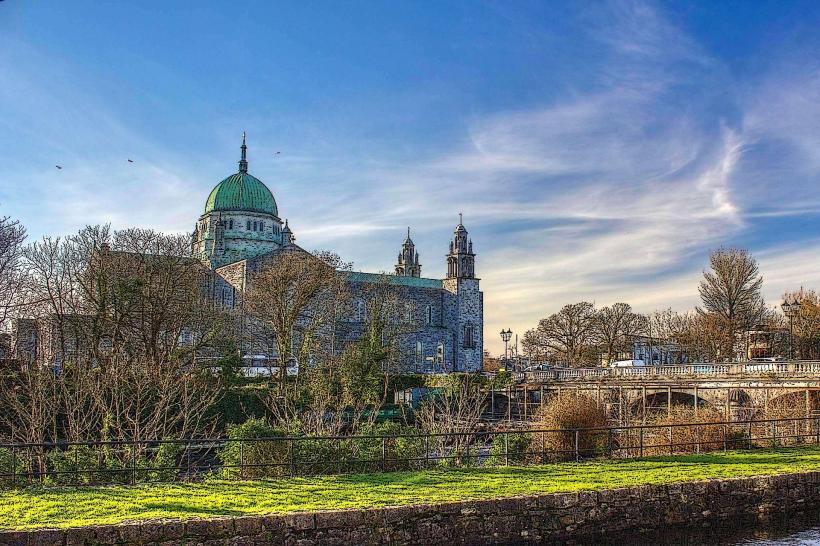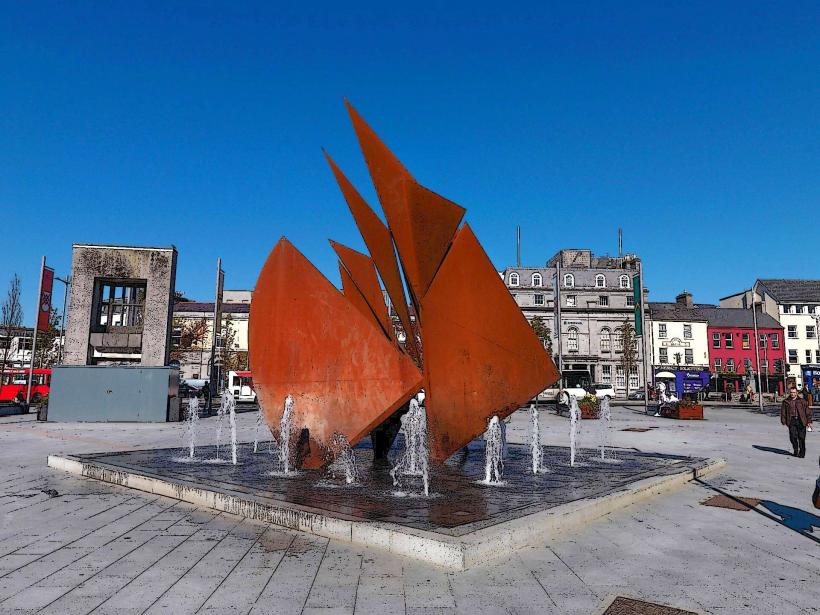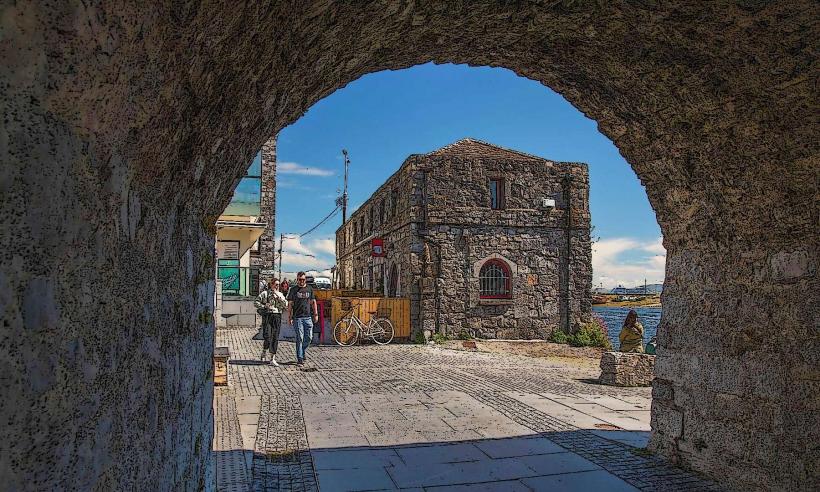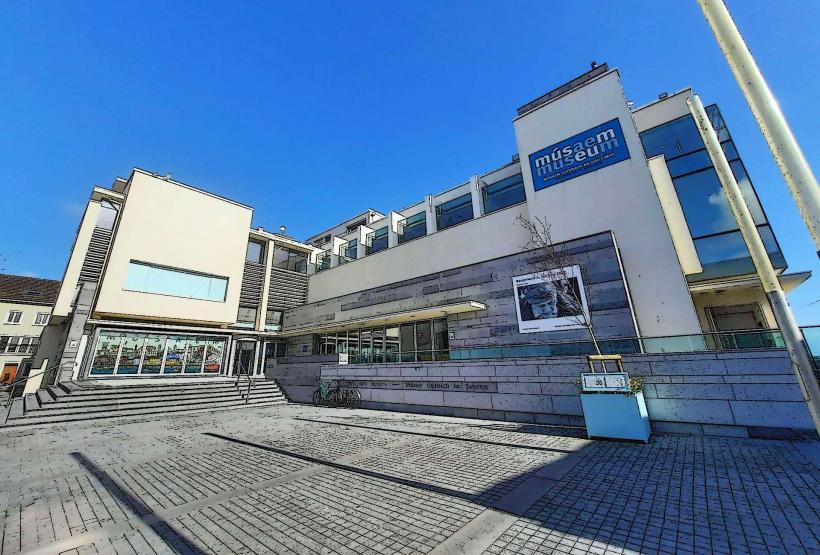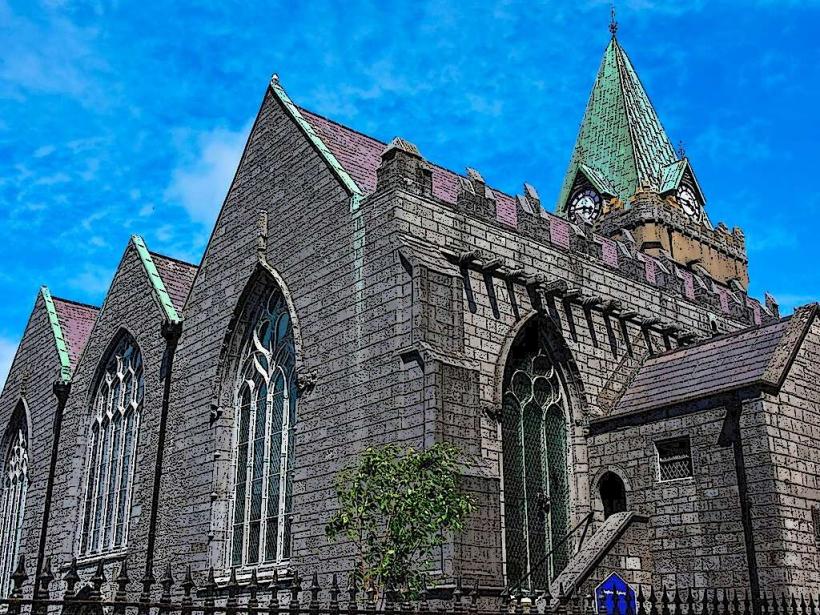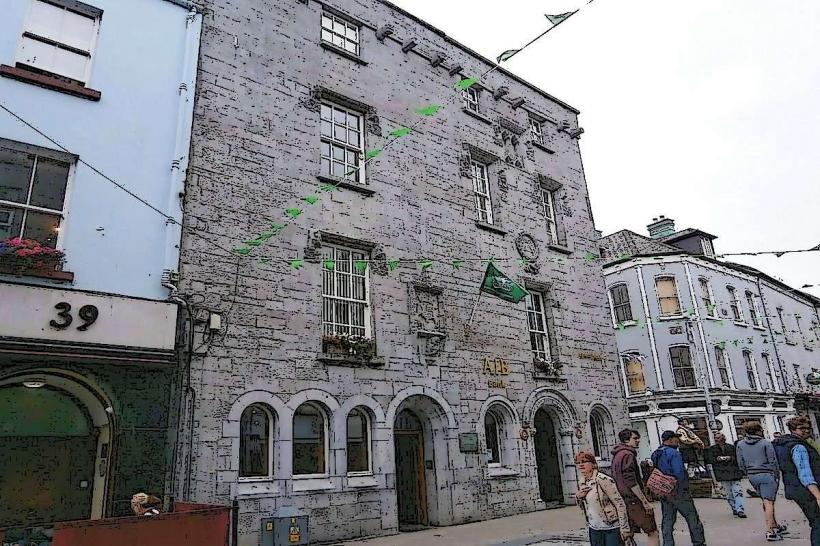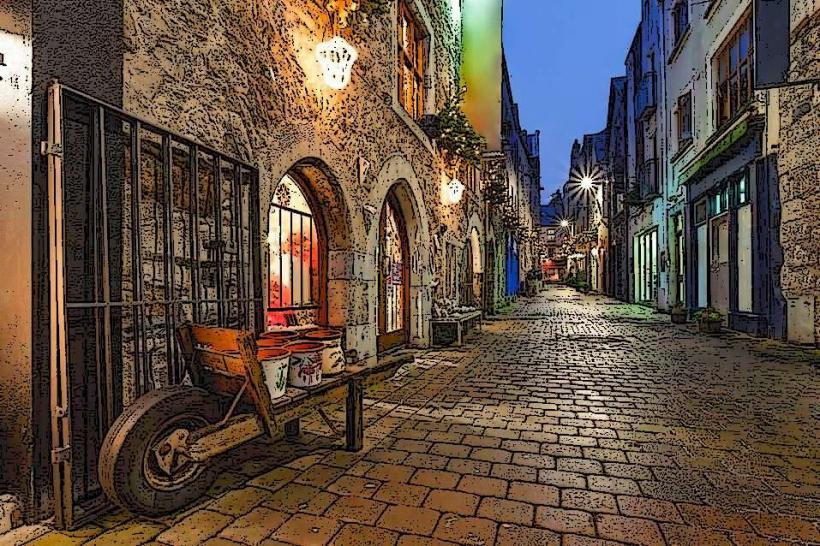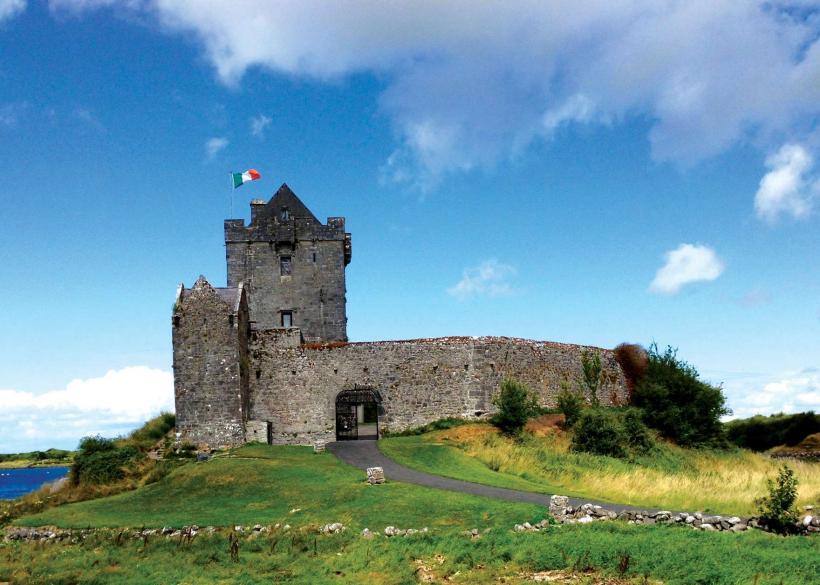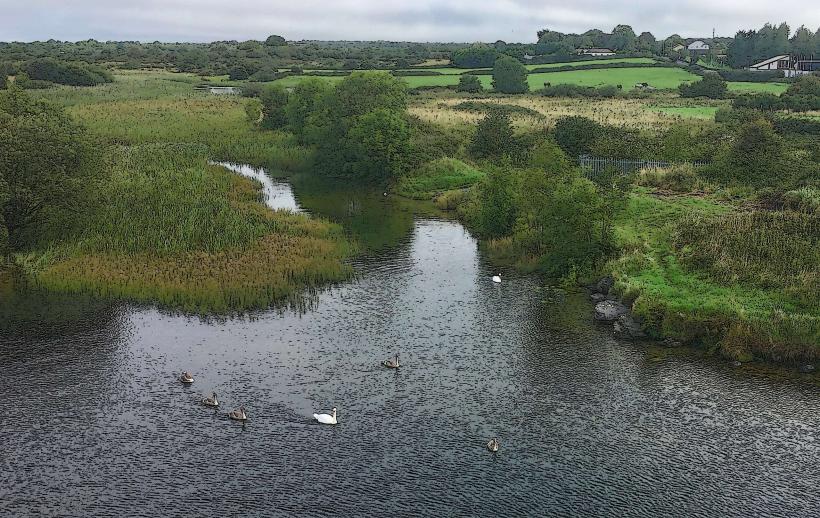Information
Landmark: Galway's Latin QuarterCity: Galway
Country: Ireland
Continent: Europe
Galway's Latin Quarter, Galway, Ireland, Europe
The Latin Quarter is the cultural and historical core of Galway City, primarily defined by the pedestrianized streets extending from the High Street and Shop Street toward the Spanish Arch. It serves as the city's primary district for independent retail, traditional hospitality, and nightlife.
Visual Characteristics
The quarter is characterized by narrow, winding medieval street patterns and cobblestone thoroughfares. The architecture features a high density of preserved stone-fronted buildings, many dating to the 16th and 17th centuries, painted in high-chroma colors. Overhead, the streets are often decorated with colorful bunting and flags representing the "14 Tribes of Galway."
Location & Access Logistics
Boundaries: The area is roughly bounded by O'Brien's Bridge to the west, St. Nicholas' Collegiate Church to the north, and the Spanish Arch to the south.
Transit: 0.4km west of Eyre Square and Galway Ceannt Station.
Pedestrianization: The majority of the quarter (Quay Street, High Street, Cross Street) is strictly pedestrian-only during daytime hours.
Parking: No vehicular access within the core. Nearest facilities are the Jury's Inn (Leonardo) car park and Hynes Yard multi-story car park.
Historical Origin
The district occupies the southwestern portion of the original Anglo-Norman walled city. Historically, this was the merchant heart of Galway where the city's powerful "14 Tribes" conducted international trade. The name "Latin Quarter" was adopted in recent decades to reflect the area’s vibrant, bohemian atmosphere and historical links to Spanish and French trade.
Key Highlights & Activities
Retail: High concentration of traditional craft shops, including Claddagh ring specialists, woolen mills, and independent bookstores like Charlie Byrne’s.
Busking: The intersection of Quay Street and High Street is a primary global hub for street performers and traditional Irish musicians.
Hospitality: Home to iconic establishments such as The Quays, Tigh Neachtain, and The King’s Head (located in a 13th-century building).
Archaeology: Remnants of the medieval city walls are visible within several commercial buildings in the district.
Infrastructure & Amenities
Connectivity: High-density 5G and 4G coverage. Free municipal Wi-Fi is active throughout the pedestrian zone.
Accessibility: While level, the cobblestone surfaces are uneven and may pose challenges for certain mobility devices.
Sanitation: No standalone public restrooms; facilities are located in the Galway City Museum (0.2km) or within the district's numerous pubs and cafes.
Best Time to Visit
Photography: Morning (before 10:00) for unobstructed views of the architecture; dusk for the atmosphere of illuminated traditional storefronts.
Crowd Density: Extremely high on weekends and during the Galway International Arts Festival (July).
Dining: Peak dinner hours (18:00–20:00) require advance reservations for most notable restaurants.
Facts & Legends
The district contains the King’s Head pub, which according to local tradition, was given to the executioner of King Charles I as a reward. A verified historical oddity is that the original medieval street levels are approximately 1–2 meters below the current pavement, as seen in the sunken floors of several local shops.
Nearby Landmarks
The Spanish Arch – 0.1km South
St. Nicholas' Collegiate Church – 0.05km North
Lynch's Castle – 0.2km Northeast
The Claddagh – 0.4km Southwest
Galway City Museum – 0.15km South

